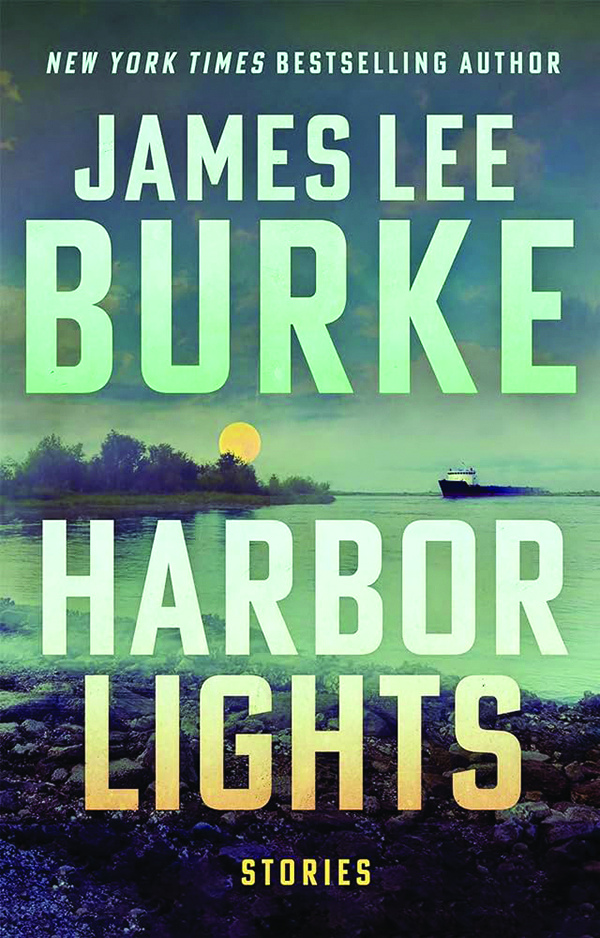Certain readers consider themselves guardians of the canon and refuse to class crime stories as literature, filing these books away out of sight in that baggy, catch-all category of genre fiction. There is, to be sure, the bad crime novel, or the run-of-the-mill offering, which relies too much on plot and pace. But there is also the well-written crime novel that prioritizes people and place. James Lee Burke is a practitioner of the latter. His finest books are literary masterpieces that explore the more sordid side of American life while shining a light into the darkest recesses of the soul.

Burke’s career has been long and his output prolific, not to mention varied. There are his westerns and epic novels of the Civil War. There are his novels featuring former Texas Ranger-turned-attorney Billy Bob Holland, and those starring his cousin, Texas Sheriff Hackberry Holland. Best of all, though, is the series of bestselling and critically acclaimed novels fronted by Burke’s most compelling and indeed most complex creation, Louisiana police detective Dave Robicheaux. While Robicheaux’s adventures make up a sizable chunk of his creator’s prodigious output, Burke’s back catalog contains only two short story collections, neither of which includes outings for his Cajun detective.
Burke’s latest book, Harbor Lights, sees the author returning to short-form fiction, although once again, Robicheaux is sadly absent and greatly missed. However, Burke compensates by delivering several particularly strong tales that follow the fortunes of members of the Holland clan.
The collection’s eponymous story is set in Robicheaux’s old stamping ground of New Iberia, Louisiana. It is late fall, 1942, and oil-and-gas engineer James Eustace Broussard and his young son Aaron are out sailing on the Gulf of Mexico when they spot four dead bodies floating in the water. James suspects a German submarine has sunk an oil tanker close to shore, but when he tells two federal agents about his discovery, they apply insidious pressure to ensure he keeps his mouth shut. Determined to speak out, he goes instead to the local newspaper, but in doing so unleashes what for Aaron is “one of the cruelest acts I would ever see one man do to another.”
The young Aaron Holland Broussard returns in “Deportees,” alongside his emotionally troubled mother, Wynona. Six days after Pearl Harbor, the pair go to stay with Aaron’s grandfather, Hackberry Holland, at his home in Yoakum, Texas. All three soon clash with sly head constable Mr. Watt, who is in charge of catching and expelling illegal Mexican immigrants. Hackberry knows Watt is the source of Wynona’s pain and that he intends to cause more by deporting a mother and her baby. But what Hackberry doesn’t count on is that his daughter is more than capable of fighting her own battles.
This isn’t the only time we encounter characters with a thirst for vengeance. “Going Across Jordan” revolves around two union organizers who seem to be on the road but are actually on the run. When one of them is double-crossed by a Hollywood actor with brutish ulterior motives, his friend, who refuses to be outsmarted by “finks and ginks and company pinks,” takes desperate measures to help him. And in “The Assault,” a university professor with a criminal past takes the law into his own hands when the police fail to pursue the neo-Nazis who left his daughter with brain damage.

Burke is too good an author to write simple, one-note stories. “The Assault” looks set to be a standard portrayal of retribution, but there is a sharp sting in the tale. “The Wild Side of Life” starts out as an ill-advised romance between Elmore, an oil rig worker, and Loreen, who suffers at the hands of her husband, Charles, but it acquires more depth and further layers when Elmore learns the scale of violence Charles has carried out elsewhere.
Burke’s two longest stories are his most satisfying. In “A Distant War,” Francis Holland’s car breaks down south of Colorado. Stranded in the middle of nowhere, he and his son Morgan seek out signs of life and soon find themselves in the company of a shifty bartender, a belligerent mechanic, and Varina, a drunken waitress. When Varina declares she is Jefferson Davis’s widow and claims knowledge of Francis’s wartime ordeals, the story transforms itself from an earthy, gritty drama into a warped, PTSD-triggered fever dream.
If “A Distant War” is the most inventive tale, then “Strange Cargo” is the most immersive. Weighing in at almost 100 pages, Burke’s last story — or novella, really — brings back Aaron, this time as an adult. He is a novelist but is also making plans to create a sanctuary for injured wildlife on the grounds of his grand antebellum house on Bayou Teche. Bullying, bigoted Sheriff Labiche makes his disapproval clear and demands that Aaron cancel his project. But Aaron has other concerns, from a cancer diagnosis to visions of the daughter he lost to drink and drugs to unexplained sightings of a blast from the past.
Burke plays a guessing game with his reader here. Our narrator is a man who converses with the dead, has allowed loneliness to become a way of life, and is brought low by black thoughts: “I sometimes want to paint my brains on the ceiling,” he confesses. Is his testimony the product of a sound mind? And to what extent is his life in peril from Labiche in the tale’s last pivotal act?
Newcomers to Burke’s fiction may be put off by the motifs in these stories. Again and again, Burke introduces men with anger issues who are still traumatized by their war exploits, who are in and out of prison, who are “clinging to the ragged edges of just getting by,” and who are provoked into confronting and retaliating against either browbeating figures of authority or tough guys on the other side of the law. Burke takes us into Louisiana’s Angola penitentiary more than once and reminds us of the horrors of sweatboxes and Gruesome Gertie, and several times, he recycles a Hemingway quote and a Gone with the Wind joke.
CLICK HERE TO READ MORE FROM THE WASHINGTON EXAMINER
Burke’s biggest fault is his propensity to spell out, rather than show subtly, the villainy of his scumbag characters, those who “avoided victimhood by becoming victimizers.” Aaron regards Sheriff Labiche as “a cretinous man, an aggregate of ignorance, tribalism, visceral appetites, and cruelty, the kind of man who should be wiped from the earth.” In case this isn’t clear enough, Burke reiterates his message 30 pages later: Labiche is “a bestial aberration dredged out of the past — craven, feckless, inhuman.”
But such flaws are minor alongside Burke’s storytelling strengths. His characters, good and bad, make their presence felt. The sights and sounds of the South are lyrically conveyed: One particular stench is redolent of “freshly discharged feces and the clogged waste in a grease trap and the putrescence of a grave blown open by an artillery shell in monsoon country.” Burke is a master at creating narrative tension; at fraught moments in his stories, the reader feels the charged atmosphere like a coming lightning storm. Above all, Burke excels, as ever, with his rigorous scrutiny of the evil that men do. These are stories of the highest caliber, written with punch.
Malcolm Forbes has written for the Economist, the Wall Street Journal, and the Washington Post. He lives in Edinburgh.
